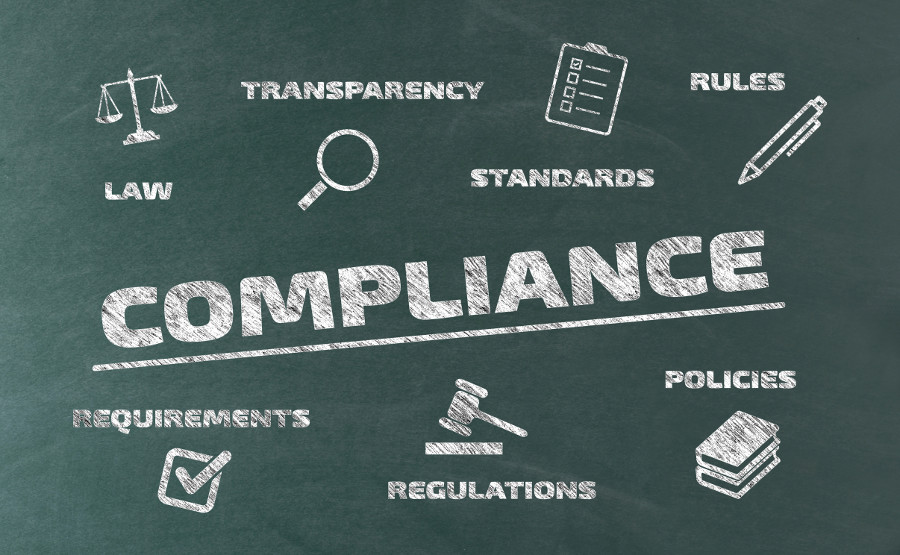
Everything You Need to Know About Real Estate Compliance
- October 29, 2021
- OHI

The contemporary business landscape is very dynamic. To keep a check on unfair business practices, governments worldwide have numerous compliance measures in place. The compliance rules and regulations vary depending on the industry and type of business. There is a real estate compliance checklist that can be followed through to make sure that the process is followed closely and make the process comfortable. This checklist is highly mandated and is required to be followed by all who are in the business.
The real estate industry has its own set of compliance to ensure fair and ethical business practices. You will be surprised to learn that the global real estate market is expected to reach $3717.3 billion in 2025. To regulate such a massive industry, robust compliance policies are needed to maintain transparency.
Real estate compliance can be explained as a set of rules and regulations that govern the functioning of a property and its components. Real estate compliance can vary depending on the region and jurisdiction. Different municipalities might have different rules and regulations regarding real estate properties. Each component used inside a property can be subject to varying types of real estate compliance rules and regulations. Compliance in real estate is an incredibly strict process and it is important to maintain this compliance for the proper functioning of the business and to make the business open for changes and new options.
When it comes to real estate compliance scrutiny, the size of the property hardly makes much difference. Before a property can be sold to the final consumer, it has to meet all the regulatory compliance rules applicable to the property. It helps to benefit the buyers and helps to limit or eliminate any existing property investment risks. The compliance rules ensure real estate risk management and also help to safeguard customers from any associated risks. Property management compliance is an important aspect of the business and it is important to make the business more comfortable in the process of being compliant with the many crucial aspects that come to be in the property management business.
Many a time, real estate compliance breaches can result in severe financial and legal penalties. Compliance for real estate companies requires a number of different elements that must be kept in mind, to preserve the business and safeguard it from external issues that might come up. Now that we understand what real estate compliance entails, let’s delve deeper into some common compliance violations to understand what all should be on your checklist.
Real estate brokers indulge in mixing up funds at times and fail to maintain adequate records. This can add to complications as there is little to no transparency in absence of proper financial records.
You must ensure that all the transactions are carried out by a licensed real estate broker. Some real estate brokers allow an unlicensed person to undertake legal activities that further add to your compliance issues.
Misrepresentation of facts includes wrongly presenting material facts to assist a sale of the property. A real estate broker should not misrepresent facts about a real estate property to interested buyers.
All the transactions are governed by a series of deadlines that ensures that the work is done punctually. From securing a mortgage & depositing funds to managing contract dates, a real estate broker needs to stick to the timeline given for different transactions.
Misaligned incentives can be created between the principal and the agent during real estate transaction deals. Since the job involves heft commissions, there can be a conflict of interest and ethical dilemma that has to be resolved.
A complete paper trail from listing the real estate property to closing the sales deal has to be maintained to ensure complete transparency. There is no room for error in this matter.
Various real estate compliance risks can result in hefty legal and financial penalties. A strong compliance program is needed to guide investors in detecting risks and to stay away from high-risk transactions. Property management compliance is doable. However, it can often enquire as an assistant if your business is new and only just growing to become a larger entity.
In such a phase of growth, it might be ideal for the business to rely on external help to allow it in dealing with these many compliance issues that might come up. Managing risk is very important for any business and it is important to keep in mind that safeguarding yourself from such issues is very important.
Pre acquisition due diligence of the assets, as well as property managers, is a must to detect risks early in the process. This helps figure out whether there have been any major issues related to the asset or the manager in the past. In addition to this, monitoring third-party property managers is also needed to steer clear of any associated risks. These are some essential elements of real estate property management which people must take into prior consideration to avoid any confusion in the long run.
The real estate compliance landscape has become quite complex over the past few decades and requires a professional approach to risk detection and mitigation. A strong compliance program in place can help to manage the property investment risks to a great extent.
OHI is a fifteen-year-old real estate services company working with 50+ commercial and residential real estate developers, funds and property management companies across USA. Our deep expertise in real estate accounting, financial analysis, lease administration and asset management has helped clients cut associated costs by 40-50%. We currently provide these services to a portfolio of 75000 units across clients.
We invite you to experience finance and accounting outsourcing through us.
Contact us for a customized NO OBLIGATION proposal for outsourcing your accounting activities.







